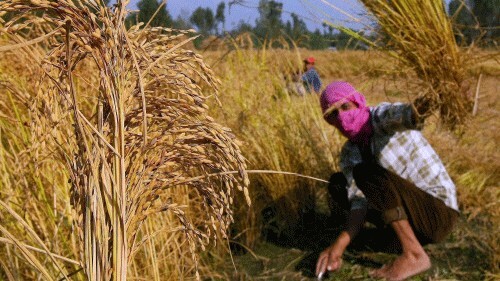In a significant development, the NITI Aayog and the Department of Commerce have raised red flags over the proposed hike in Minimum Support Prices (MSP) for certain agricultural commodities. Citing concerns related to World Trade Organization (WTO) subsidy regulations and potential inflationary pressures, the move highlights the delicate balance between supporting farmers and adhering to international trade agreements.
The proposed MSP hike for agricultural products has been a subject of debate, with agricultural organizations and policymakers considering measures to enhance farmers’ income and ensure their economic well-being. However, the NITI Aayog and the Department of Commerce have expressed reservations, underscoring the need to carefully assess the implications of such a move.
The concerns stem from the fact that MSP increases could potentially lead to higher levels of government subsidies for agriculture, which may be subject to scrutiny by the WTO. International trade regulations aim to prevent unfair competition and distortions in global markets, making it essential for countries to align their domestic policies with international commitments.
Additionally, the fear of inflationary pressures resulting from a significant MSP hike has prompted caution from economic experts. Rapid increases in MSPs could potentially lead to higher consumer prices for essential goods, impacting household budgets and creating challenges for managing inflation rates.
The deliberations between agricultural welfare and international trade agreements underscore the complexities of policymaking in a globalized world. While supporting farmers is a critical priority for many governments, ensuring that policies do not inadvertently disrupt international trade norms or create domestic economic imbalances is equally important.
As discussions continue, the balance between supporting farmers’ livelihoods and adhering to international trade commitments will likely be a central theme. Policymakers are faced with the challenge of devising solutions that benefit both agricultural communities and the broader economic landscape.
The red flags raised by the NITI Aayog and the Department of Commerce serve as a reminder that policy decisions must be carefully considered, taking into account both domestic and international ramifications. The concerns also prompt a broader conversation about the need for comprehensive and coordinated approaches to address the complexities of agricultural policies, international trade, and economic stability.










